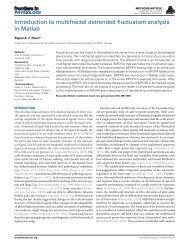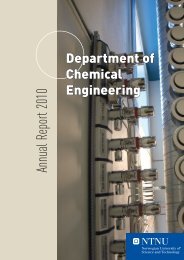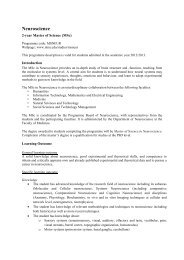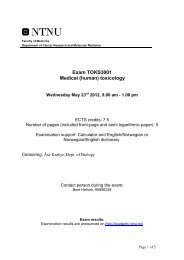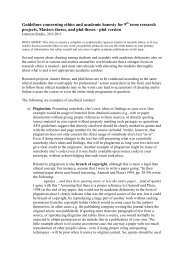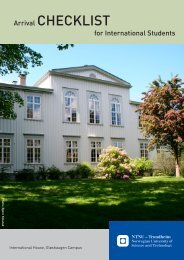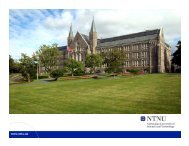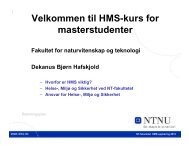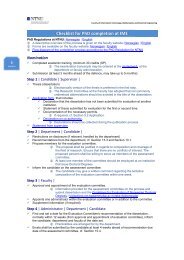Annual Report 2011 - NTNU
Annual Report 2011 - NTNU
Annual Report 2011 - NTNU
Create successful ePaper yourself
Turn your PDF publications into a flip-book with our unique Google optimized e-Paper software.
2.4 GLOBAL ECONOMIC FLOWS, GOVERNANCE AND STABILITY<br />
Rationale and Research Objectives<br />
Over decades international trade has grown substantially more rapid than total world<br />
production. Improved technological possibilities for trade and capital flows, and<br />
reduced regulations on the movements of goods and capital between countries, have<br />
made economies more open at the same time as they have become more<br />
interdependent. Over the last 50 years there are some broad and important patterns<br />
of world growth. The western world had rapid growth in the first decades after the<br />
second world war. In recent decades Asia has been the growth winner. In 1960 per<br />
capita income was about the same in Asia and Africa. However, from then on we see a<br />
divergence – where Asia has grown and Africa has not. With current growth rates, half<br />
of the world population doubles its income every 10 th year.<br />
The fast growing countries have at least two important common characteristics: They<br />
have plenty of cheap labor, but they have few natural resources. The result has been<br />
high prices on natural resources, and low prices on manufactured goods. This shift in<br />
relative prices has benefitted thos ecountreis that export natural resources and import<br />
manufactured goods – in particular Norway. At the same time globablzation has gone<br />
hand in hand with increased international macroeconomic imbalances. Most western<br />
countries have expanded their public or foreign debt.<br />
While on the other hand in particular China have had huge current account surpluses.<br />
Today most people would agree that the current economic imbalances are not<br />
sustanable, and many would also claim that they are a major cause of the recent<br />
financial crisis.<br />
The focus area aims to study how the recent developments of globalization (as<br />
described above) affect the economies and politics of different countries by<br />
addressing following three research questions.<br />
<br />
<br />
<br />
Why does China save so much?<br />
Why does natural resources breed success in some countries but failure in others?<br />
How does globalization affect governance?<br />
Main Activities <strong>2011</strong><br />
In <strong>2011</strong>, the focus area started its activities and prioritized network building with a priority<br />
on international cooperation. The research area where also active in project initiation and<br />
publication. Accordingly, the focus area allocated funds on scholars’ international travelling,<br />
project initations and hiring a Professor II position (Professor Halvor Mehlum, Department<br />
of Economics, University of Oslo). The focus area also had a workshop joint with focus area<br />
Intercultural Dynamics, which attracted a number of leading international scholars.<br />
27





